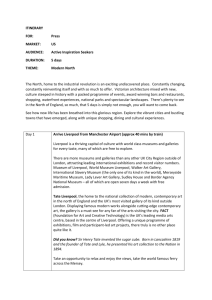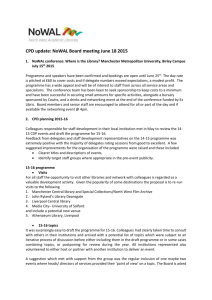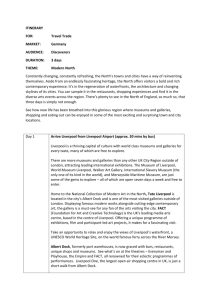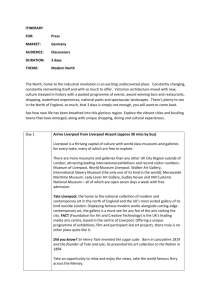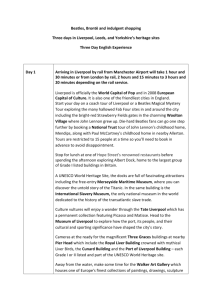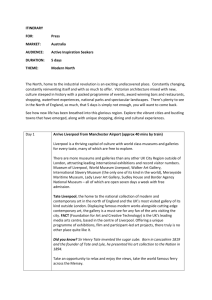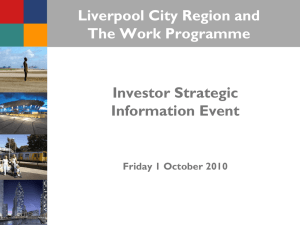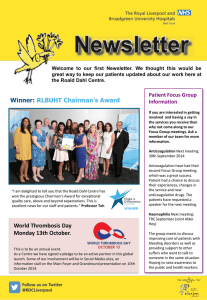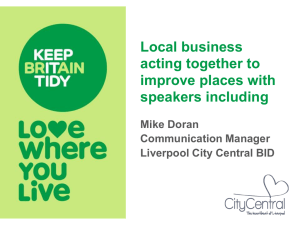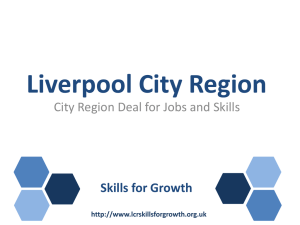Getting the North Up to Speed - Ian Wray
advertisement
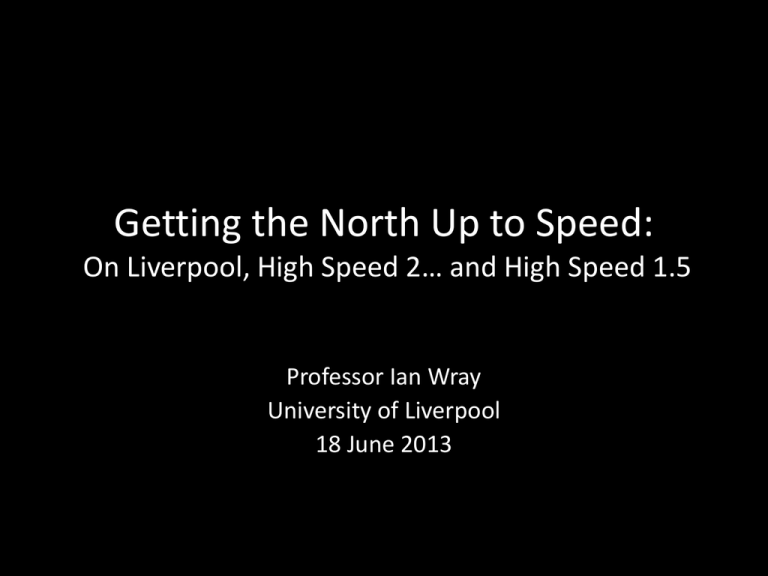
Getting the North Up to Speed: On Liverpool, High Speed 2… and High Speed 1.5 Professor Ian Wray University of Liverpool 18 June 2013 HS2 is great for Manchester… • • • • Airport - Euston 59 minutes Potential airport catchment growth City centre - Euston 68 minutes Three trains per hour - each with 1100 seats We should all support this… Disappointing for Liverpool … in terms of journey times …total hourly seats …and catchment population per available seat Causes • No high speed link • Scheduling of services (Liverpool services make multiple stops en route) • 2 trains per hour with only 500 seats Consequences • HSR could support regional economies – though evidence can be ambivalent • But regional polarisation can occur if one larger place is better served • French planners at pains to avoid in Pas de Calais Options 1. Liverpool high speed spur 2. Closer connection to London Manchester route 3. Upgrade to Crewe Liverpool route for ‘nearly high speed’ running 4. Improve Liverpool’s wider connections especially east- west to Manchester (the UK’s second London?) Evaluation • Wholly new spur or closer links to HS2 route impractical on cost and capacity ground • Upgrading Crewe-Liverpool achievable • And complementary HS1.5 seems low cost and achievable Towards HS 1.5… • Electrification committed to Liverpool/ Manchester/Leeds/ York and thus Newcastle • Some capacity enhancements committed via ‘Northern Hub’ • Why not an integrated transport and regeneration corridor? What’s missing? • • • • • Electric tilting trains Branding and refurbished stations More park and ride Four tracking over Pennines and elsewhere Re-signalling, better junctions, passing loops A French style corridor contract • • • • • • • ‘Low speed high speed rail’ Faster journey times Faster access to Manchester Airport Reimaging Agglomeration economies Rail related development A new residential corridor, ideal for dual income families NOMA and HS1.5 Costs and funding • Low capital outlay (especially re HS2) • Tilting trains • Minor infrastructure (no major structures and no disturbance) • Potential for planning gains via Community Infrastructure Levy • Potential for European funding Can we tick the boxes? ‘Electric Spine’ More capacity and faster journey times between key cities Improved commuter travel into urban areas Better links to ports and airports Connecting the North ‘The North is not an easy place to get around…the most efficient way of bringing representatives together could be to travel to London… Connectivity in the North is defined by interdependence between northern cities and London, and by barriers between northern cities themselves. Removing these barriers could make a key contribution to economic performance.’ Manchester University for the Northern Way, 2008 Can we afford it? Can we afford it? Who might lead? Strategic planning and institutional platforms Some institutional options: • Metro mayors? • The private sector? • A Northern Infrastructure Corporation? • A wider role for Network Rail or for HS2?
